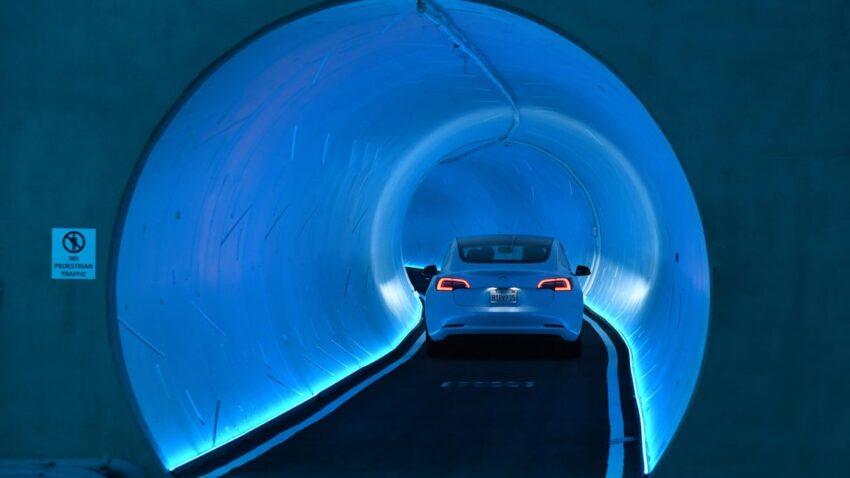
boring company cited for almost 800 environmental Nevada state regulators have accused Elon Musk’s Boring Company of violating environmental regulations nearly 800 times in the last two years as it digs a sprawling tunnel network beneath Las Vegas for its Tesla-powered “people mover.”
boring company cited for almost 800 environmental
Overview of the Violations
The Boring Company, founded by Elon Musk in 2016, aims to revolutionize urban transportation through underground transit systems. However, recent findings from the Nevada state Bureau of Water Pollution Control have raised significant concerns regarding the company’s compliance with environmental regulations. According to documents obtained by City Cast Las Vegas and ProPublica, the Boring Company has allegedly committed almost 800 environmental violations since 2021, primarily related to its tunneling operations in Las Vegas.
Details of the Allegations
The allegations against the Boring Company are serious and multifaceted. Key points include:
- Unauthorized Digging: The company reportedly began excavation activities without the necessary approvals from state regulators, which is a direct violation of established environmental protocols.
- Untreated Water Discharge: There are claims that the Boring Company released untreated water onto city streets, potentially posing risks to public health and safety.
- Spillage of Construction Materials: The company has been accused of spilling muck from its trucks, which can lead to soil and water contamination.
These violations are not isolated incidents; they represent a pattern of non-compliance that has raised alarms among environmental advocates and regulatory bodies alike.
Background on Regulatory Framework
The Boring Company had previously faced scrutiny for its environmental practices. In 2018, the company was fined for discharging groundwater into storm drains without the necessary permits. Following this incident, a settlement agreement was established to ensure compliance with state water pollution laws. This agreement, signed by a Boring executive in 2022, was intended to hold the company accountable and prevent future violations.
However, the recent cease-and-desist letter issued on September 22 indicates that the Boring Company has allegedly violated this settlement agreement multiple times. State inspectors reported nearly 100 new violations, which raises questions about the company’s commitment to adhering to environmental regulations.
Specific Violations Documented
The cease-and-desist letter outlines specific violations that have been documented by state inspectors:
- Missed Inspections: The Boring Company reportedly failed to hire an independent environmental manager, which is a requirement under the settlement agreement. State regulators noted that there were 689 missed inspections of construction sites, indicating a lack of oversight and accountability.
- Repeated Non-Compliance: The letter emphasizes that the company has not only failed to comply with the terms of the settlement but has also engaged in practices that exacerbate environmental risks.
Implications of the Violations
The implications of these violations are far-reaching, affecting not only the Boring Company but also the broader community and environment in Las Vegas. The potential consequences include:
- Environmental Damage: The release of untreated water and spillage of construction materials can lead to soil and water contamination, affecting local ecosystems and public health.
- Regulatory Scrutiny: The Boring Company may face increased scrutiny from state regulators, which could result in further fines or restrictions on its operations.
- Public Trust: Continued violations could erode public trust in the Boring Company and its ability to deliver on its promises of innovative transportation solutions.
Stakeholder Reactions
Reactions to these allegations have been mixed. Environmental advocates have expressed concern over the Boring Company’s practices, emphasizing the need for stricter oversight and accountability. Local residents have also voiced their worries about the potential environmental impact of the company’s tunneling operations.
On the other hand, the Boring Company has defended its practices, asserting that it is committed to adhering to environmental regulations. However, the mounting evidence of violations raises questions about the company’s sincerity and effectiveness in managing its environmental responsibilities.
Future Considerations
As the Boring Company navigates these challenges, several factors will play a crucial role in determining its future operations:
- Regulatory Compliance: The company must take immediate steps to address the violations cited by state regulators. This includes hiring an independent environmental manager and ensuring that all construction activities comply with state laws.
- Community Engagement: Building trust with the local community will be essential for the Boring Company. Engaging with residents and addressing their concerns can help mitigate negative perceptions.
- Long-Term Sustainability: The Boring Company must prioritize sustainable practices to ensure that its operations do not harm the environment. This includes implementing measures to prevent water discharge and material spillage.
Conclusion
The Boring Company’s recent environmental violations highlight the complexities and challenges of balancing innovative transportation solutions with environmental responsibility. As the company moves forward, it will need to address these issues head-on to maintain its credibility and fulfill its mission of transforming urban transit.
In light of the nearly 800 alleged violations, the Boring Company faces a critical juncture. The path it chooses will not only impact its operations but also the broader conversation about sustainable urban development and the role of technology in addressing transportation challenges.
Source: Original report
Was this helpful?
Last Modified: October 10, 2025 at 8:35 pm
1 views















